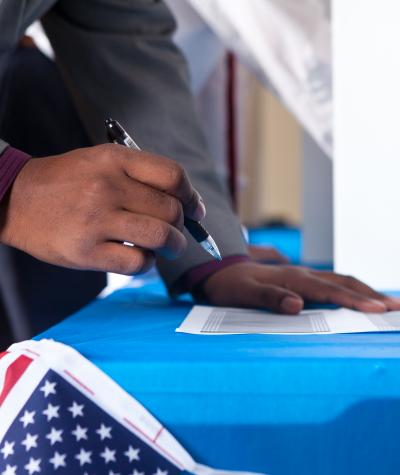Gov. McAuliffe, despite court decision, restores voting rights one at a time
Virginia Gov. Terry McAuliffe announced today that he has restored voting rights to 13,000 individuals who have served their time for felony convictions.
The governor’s move comes on the heels of a Supreme Court of Virginia decision in which the court struck down the governor’s sweeping re-enfranchisement executive order. A group of Republican state lawmakers and voters challenged the governor’s order on the basis that the governor could not restore rights to a group, but must do so on an individual basis.
For that reason, Gov. McAuliffe promised to restore voting rights to all Virginians covered in his original order one at a time. And today, he has begun that process, which he promises to complete by next week.
As many as 5.85 million Americans nationwide are prohibited from voting due to laws that disenfranchise citizens convicted of felony offenses. Only two states — Maine and Vermont — do not restrict voting rights of anyone with a felony conviction, including those in prison. Public opinion surveys report that 8 in 10 U.S. residents support restoring voting rights for those on probation or parole.
But felony disenfranchisement laws of varying forms remain on the books in many states. Legislators in the Jim Crow South enacted felon disenfranchisement laws as part of an array of discriminatory voting provisions that included poll taxes, literacy tests, grandfather clauses and white primaries. These other tests and devices have since been outlawed, yet felon disenfranchisement laws remain on the books.
The racially discriminatory effect of felony disenfranchisement laws is clear. Nationwide, according to the Sentencing Project, one in every 13 black adults cannot vote as a result of felony convictions. In three states — Florida, Kentucky and Virginia — more than one in five black adults is disenfranchised because of these laws.
Virginia is among the states with some of the most restrictive felony disenfranchisement laws, and restoration of these rights depends on the governor’s persistence and continued action to implement the office’s clemency power. Gov. McAuliffe has taken the right step in combatting a longstanding discriminatory policy and is widely supported within the state. A mid-June poll found that 65 percent of Virginia voters — including many Republicans and more than 60 percent of independents — supported McAuliffe’s actions to restore voting rights.
Denying the right to vote to entire class of citizens violates the basic principles of our democracy. There is no reason that individuals, just because of a felony conviction, should permanently be locked out of the political process. Plus, studies have found that restoring the vote to individuals after they leave prison helps aid their transition back to community life.
McAuliffe, like hundreds of elected executives before him, is rightfully exercising his legal power to restore such rights to individuals who deserve to have a voice and say in our democracy.

